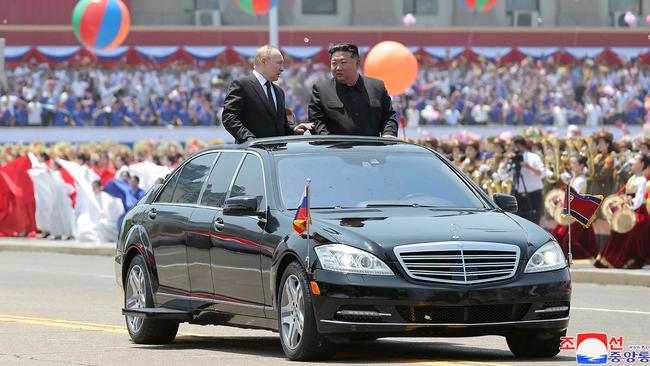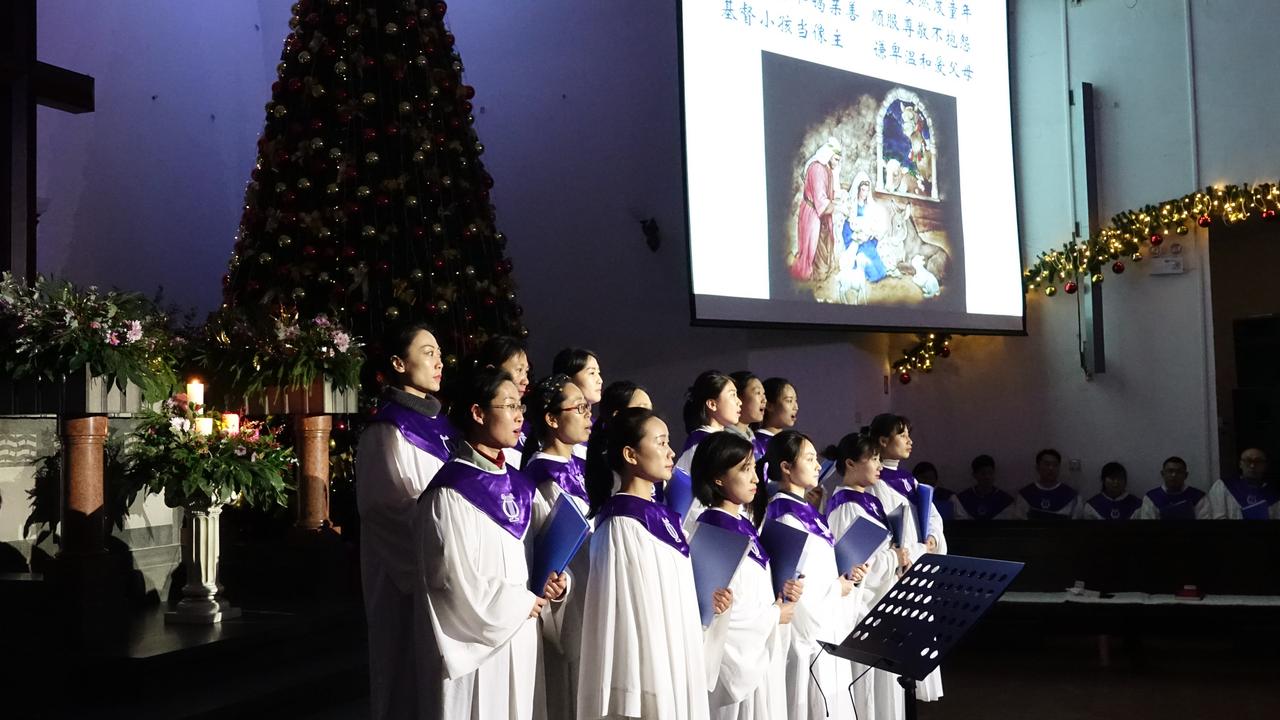Kim Jong-un’s cannon fodder advance to their slaughter
North Korean soldiers in a ‘suicidal assault’ near Kursk in Russia against Ukrainians this month made no attempt to seek cover.

The North Koreans were thrust into no man’s land on a bright morning in December, afforded neither the cover of darkness nor apparently the concern of their generals.
On one of the most surveilled battlefields anywhere in the world, about two dozen fighters who had made the long journey from Kim Jong-un’s hermit regime clustered together, then simply jogged out towards the Ukrainian lines.
Wearing the green fatigues of the Russian army, the Koreans made no attempt to seek cover and were quickly spotted crossing the snow-covered field by a Ukrainian drone. Following a live feed on his monitor, Vitaliy, 35, recognised the tactics behind the Koreans’ apparent death wish.
A veteran of the battle of Bakhmut, the special forces officer had seen waves of Russian murderers and rapists sent to their deaths in the Donbas. “The Wagner group had a simple order: advance or die. It looked like exactly the same thing for the Koreans,” he said.
The assault was one of many that took place along the Ukrainians’ left flank in Kursk on the morning of December 15. The young Koreans, no doubt seeing the outside world for the first time, died in their hundreds, according to the Pentagon.
“Seeing such a big group moving together was like a dream for our mortars and machinegunners,” said Vitaliy. “I don’t know if they all died. But put it this way, the attack was stopped pretty quickly.”
Grisly pictures of waxen corpses lying in the snow were quickly posted online. One video appeared to show a Russian soldier trying to burn the face off a dead North Korean to disguise his ethnicity – further evidence, according to Ukraine’s President Volodomyr Zelensky, of Vladimir Putin’s barbarism.
“There is not a single reason for North Koreans to fight and die for Putin,” he said on X. “And even after they do, Russia has only humiliation for them.”
There is a grim logic to these human wave assaults, intended to press home Putin’s most glaring advantage: his superiority in numbers.
Putin has boasted of recruiting another 430,000 troops this year and bullishly declared his intent to conquer the entirety of the Donetsk, Luhansk, Zaporizhzhia and Kherson regions in 2025. The overall strength of the Russian army is 1.5 million, Ukrainian sources said.
Thousands of ex-convicts died in the battle for Bakhmut and the city eventually fell to the Russian onslaught. A similar result in Kursk, aided by North Korean troops, would deprive Zelensky of his strongest bargaining chip in the peace talks that Donald Trump has promised to initiate when president.
Given the diplomatic significance of this otherwise unremarkable sliver of Russian land, Putin appears unconcerned by the staggering losses, provided he recaptures all Russian territory before Trump’s inauguration.
While Russia has suffered its steepest casualty rates of the war so far in recent weeks, it has succeeded in weakening Zelensky’s grip on the Kursk region and inched towards capturing Pokrovsk, a Donbas garrison town that could unlock further advances.
“We are seeing a turning point on the front line,” Putin declared this week.
In Kursk an estimated 11,000 North Koreans soldiers are ready to enter the fray, part of a combined Russian force of 50,000 troops. In return for their sacrifice, Kim will reportedly receive MiG-29 and Su-27 Russian fighter jets.
Western officials calculate that Ukraine has already lost about 40 per cent of the Russian land conquered in its surprise offensive this summer.
Already braving barrages of glide bombs and swarms of spotter drones, the Ukrainians must now withstand suicidal charges from North Koreans. The Ukrainians have nicknamed their new adversaries “gooks”, a racial epithet used by US troops during the Vietnam War. The term was borrowed from Apocalypse Now, Francis Ford Coppola’s 1979 film about the mind-altering horror of war.
In Sumy, where entire buildings have been cratered by glide bombs, Vitaliy chattered late into the night about the parallel universe on the other side of the border before his return to Russia.
To many western eyes North Korea appears to be a dystopia, where a brainwashed population suffers the cruelty of a peevish despot.
But according to Vitaliy, the evidence collected by Ukrainian troops in Sudzha suggests that Russia increasingly resembles its weird and hermetic neighbour. He described schoolbooks venerating Stalin, icons of Putin kept on bedside tables and volumes of black magic recovered from the house of an FSB intelligence officer.
There may be worse to come for those defending Kursk if Putin receives the 100,000 North Korean troops Ukraine believes could be made available. Thankfully for the defenders, there is little sign yet of these additional troops being mobilised.
“We can hold on to Kursk for at least a month, hopefully much longer,” Lieutenant General Serhii Nayev, one of Kyiv’s top commanders, said. “It all depends on the resources.”
President Joe Biden is sending about $US1 billion of military aid to Ukraine before he leaves the White House. Another $US5.6bn approved by the US congress will not have been spent by that time, which means that Mr Trump, who has threatened to withdraw all support, will have the final say on whether to continue the shipments.
“It has got to stop,” he said recently. “Everyone is being killed. It’s the worst carnage this world has seen since World War II.”
Ukrainian recruits this week watched their instructors pull a heavy net over a Swedish CV90 armoured vehicle. “I try not to get too nervous about going in,” said Sasha Haisin, 49, a grower of mushroom compost from Ternopil in western Ukraine.
Like many caught up in Mr Zelensky’s recruitment drive, Haisin – pulled over while driving to work in early September – was deposited at an enlistment office, where he was told to join the infantry despite his time spent in national service working in Soviet air defence. “I haven’t seen my family since,” he said.
As Russia pours Korean troops into Kursk, many of the Ukrainians preparing to meet them on the battlefield are middle-aged and lacking in the motivation evident among those who fought at the beginning of the war.
“All the people who wanted to sign up have already done so,” said Moryachok, 45, a grizzled gunner in the 21st Brigade known only by his call-sign.
When not training soldiers, Moryachok is part of a three-man team that goes into Russia in the Swedish armoured vehicle, delivering ammunition, food and water to Ukrainian soldiers and evacuating injured comrades.
The net that is thrown over the CV90 protects its vulnerable turret from Russian drones. Under drifting snow, Moryachok said he would be happy to kill as many North Koreans as necessary to defend Ukraine.
But he expressed a growing reluctance to run the gauntlet of Russian drones again, knowing that one day a Lancet, Russia’s largest loitering munition, would find its mark – and there would be no escape.
The Times


